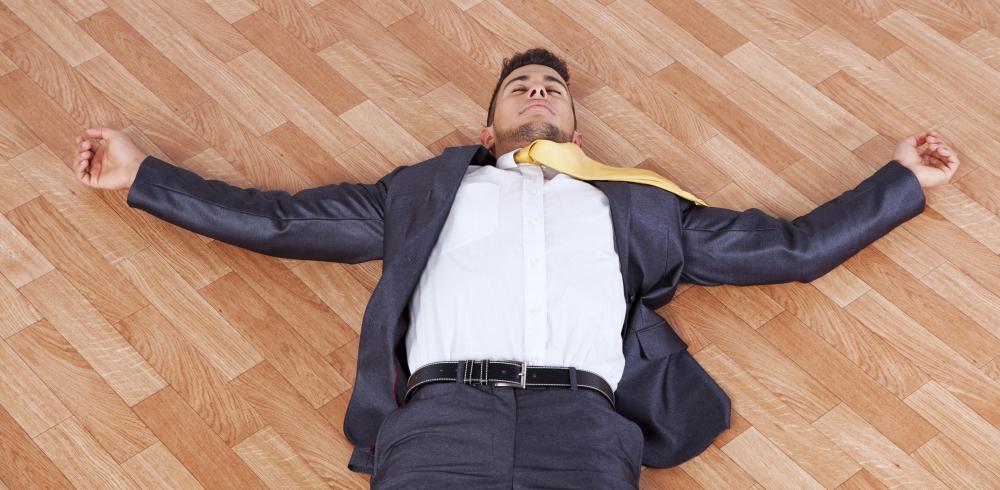At WiseGEEK, we're committed to delivering accurate, trustworthy information. Our expert-authored content is rigorously fact-checked and sourced from credible authorities. Discover how we uphold the highest standards in providing you with reliable knowledge.
What are the Most Common Causes of Syncope?
Syncope is more commonly known as fainting, and causes of syncope usually involve a lack of blood flow to the brain. This can happen for a number of reasons that ultimately result in oxygen deprivation in the brain, usually temporary. There can be a problem in the function of the heart, of the blood vessels, or either of these caused by a sudden emotional response to surroundings or an environmental stimulus.
One of the most common root causes of syncope is low blood pressure. This occurs when the heart is pumping less than the required amount of blood through the body, resulting in a lower than normal amount of oxygen being delivered to the brain. An irregular heartbeat, heart palpitations, or other heart conditions may add to this risk. When this oxygen deprivation occurs, it can be serious enough to cause fainting and loss of consciousness.

Hypotension, or low blood pressure, is often caused by sudden changes in the rhythm of an individual's heart. This can occur when there is a major emotional reaction to something in the environment, a sudden physical threat or exertion, or sudden, involuntary body functions. A severe and prolonged coughing fit can result in a drop in blood pressure and lead to an experience called situational syncope; this refers to causes of syncope that involve a sudden occurrence.

Stress is one of the most common and most well-known causes of syncope. Bad news, pressure at home or at work, or a sudden, life-changing event can all play havoc with the rhythm of the heart and lead to a fluctuation of blood flow to the brain. Feeling lightheaded and dizzy can be precursors to a loss of consciousness in these situations. Syncope caused by these types of emotional stimuli is called vasovagal syncope.

Another of the common causes of syncope is dehydration. Not properly hydrating when exercising can cause the heart to work overtime and pump less blood through the body and to the brain. Keeping hydrated can eliminate most problems, and if it does not, fainting while exercising can be a sign of a more serious condition. Excessive sweating rids the body of vital water, which should be replaced when taking part in heavy physical activity.

Sometimes, simply moving quickly can cause a change in the way blood is taken to the brain. Standing suddenly, especially when coupled with other conditions such as dehydration or fatigue, can result in syncope. When stationary for a long period of time, such as on a long flight, it is important to get up and stretch occasionally and to be careful when doing so. Most often, this is coupled with some kind of pressure on the carotid artery of the neck that restricts blood flow to the brain.
AS FEATURED ON:
AS FEATURED ON:
















Discuss this Article
Post your comments